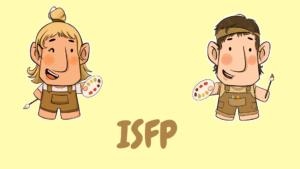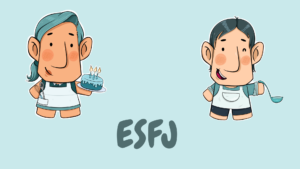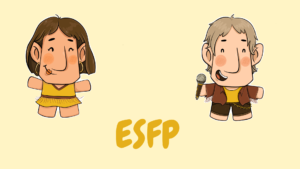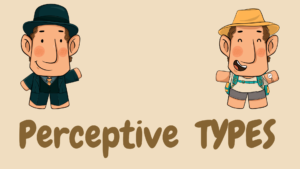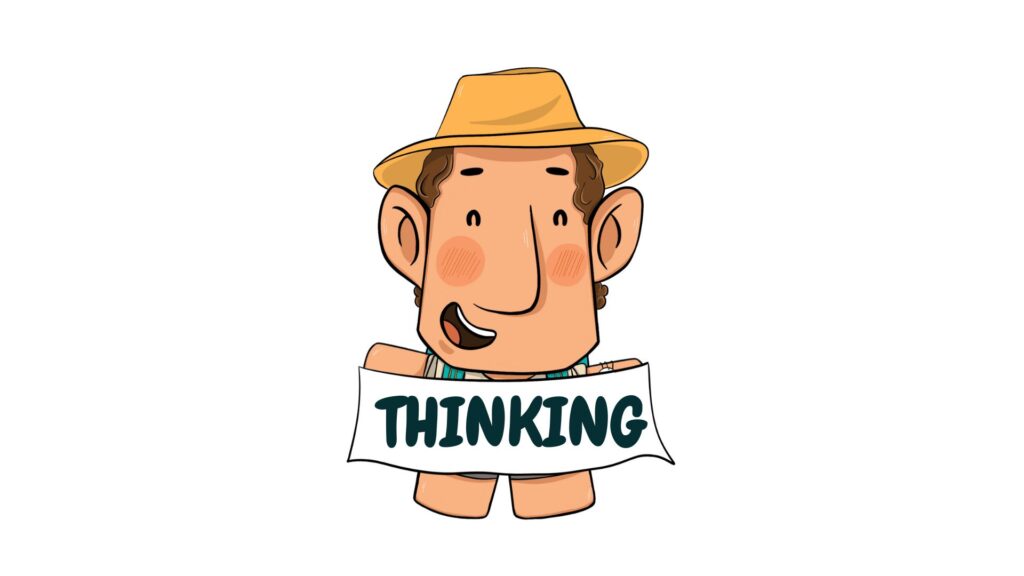
Is your brain like a turbocharged supercomputer that crunches numbers faster than a caffeinated cheetah? And are you the ultimate Sherlock Holmes of the thinking world, always on the lookout for logical inconsistencies and argumentative flaws? If so, congratulations, you might just be the Einstein of thinking tendencies! My thoughtful friend, embrace your logical genius with a side of humor and exaggeration. Let your analytical skills soar to new heights as you ride flaming torches and unicycles. So let’s get to know more of the thinking world.
Where Did the Thinking Word Come From?
Thinking is a powerful tool that has helped humans achieve great things throughout history. The concept of thinking has been studied by philosophers and scientists for centuries. In the early days, philosophers like Socrates and Plato believed that thinking was a divine gift. They thought that humans could think because they had a soul that was connected to the gods. Later, scientists began to study thinking from a more scientific perspective. They wanted to understand how the brain works and how it allows us to think. In the 20th century, scientists such as Jean Piaget and Leo Vygotsky developed theories about how children learn to think. Also, according to Carl Jung, thinking is one of the four main functions of the psyche. Jung believed that thinking is a rational and objective process that allows us to understand the world around us.
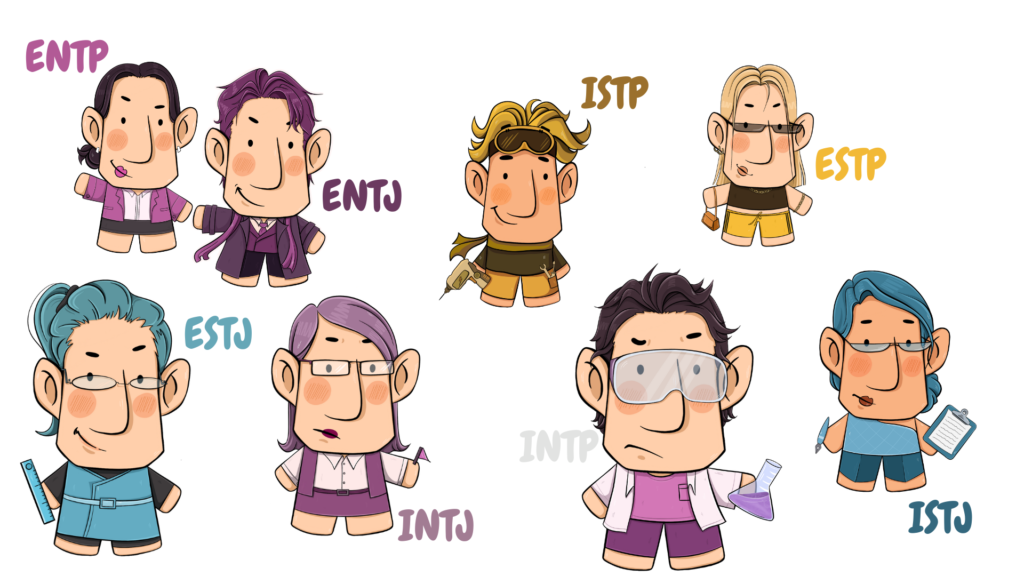
Broadened Perspective on Thinking
Thinking seems to be akin to wielding a magical sword of logic and objectivity in this enchanting realm. It encapsulates the essential processes of data processing, decision-making, and problem-solving—attributes that even the logical Spock might admire. This profound focus on thinking nurtures a profound appreciation for critical analysis and a steadfast commitment to rationality. When confronted with challenges, individuals with this cognitive prowess don their capes of objectivity and skillfully evaluate situations with a dispassionate and analytical approach worthy of Sherlock Holmes.
Heightened Characteristics of Thoughtful Individuals
· Selective Over-Analysis
Thoughtful individuals have a splendid knack for selectively over-analyzing truly unimportant matters. A prime example could be meticulously analyzing the color scheme and lighting design of a fast-food restaurant, focusing on the aesthetic value rather than the cuisine itself.
· Rational Procrastination
Their robust penchant for rational deliberation often manifests as a sly form of procrastination, cleverly masked as a “strategic planning phase.” This might involve meticulously planning the organization of their bookshelf instead of diving into the assignment waiting on their desk.
· Curious Nitpicking
Expressing boundless curiosity, they delight in nitpicking over minute details, ensuring that an idea once straightforward is now an intricate labyrinth of unfathomable details. For instance, they might dwell extensively on the mechanics of how a pen writes, turning a simple tool into a philosophical inquiry.
· Inquisitive Overreach
Their inquisitive nature can extend to moments of overreach, as they tirelessly seek truths and delve into concepts that might seem trivial to others. This could involve embarking on an investigative journey to uncover the elaborate reasoning behind a housefly’s flight path within a room.
· Endless Reflection
Engaging in reflective contemplation, they often spend thought-provoking hours ruminating on decisions and events, occasionally taking the time to contemplate the cosmic significance of a mundane social interaction.
· Strategic Overthinking
Proficient in strategic analysis, they might succumb to strategic overthinking, devising intricate, step-by-step plans for tasks that wouldn’t necessitate such detailed orchestration, such as plotting the most efficient route for a leisurely stroll in the park.
Development and Nurturing of Thinking
Alright, we don’t need to rearrange our brain cells like a Tetris puzzle to get better at logical thinking. But hey, we can definitely amp up our knack for reasoning without morphing into a robot. It’s like dialing up our inner Sherlock Holmes—minus the fancy hat.
So, how do we rev it up? Let’s start with the basics. Throw some everyday questions out there, like “Do I really think through all angles before making a call?” It’s about digging into things, not just gliding on autopilot. Next, cozy up to problem-solving. Yeah, it’s not always a party, but tackling issues with a touch of logic and finesse can be a total game-changer.
And hey, let’s not forget to sprinkle in some strategic planning. Picture it as a mental game—charting decisions like a chess master without the actual game board. It’s about embracing our thinking strengths without sprinting down the slippery slope of overthinking. So, let’s beef up those thinking skills, kick that autopilot to the curb, and dive into the rollicking adventure of thinking, with a dash of sass!
Increasing your thinking skills is not just about embracing everyday questions but also involves problem-solving, strategic planning, and forethought. It helps to analyze decisions thoroughly and approach challenges with a blend of logic and creativity. By developing a more precise knack for reasoning and problem-solving, you can enhance your cognitive arsenal and approach tasks with renewed strategy and finesse.

Pros and Cons of Being a Thoughtful
Pros of Being a Thinker
· Savvy Problem-Solvers
Thoughtful individuals have a knack for effortlessly untangling complex problems, showcasing eureka moments that rival even the most thrilling Netflix series.
· Cool-headed Decision Makers
They navigate chaos like emotion-ninjas, earning accolades for maintaining their composure and making carefully calculated decisions during turbulent moments.
· Articulate Debaters
These intellectual heavyweights dive into rigorous debates, transforming casual banter into a mental decathlon that challenges even the sharpest of minds.
· Visionary Planners
They excel at crafting life strategies that leave chaos in the rearview mirror, setting sail for smoother waters ahead.
· Insightful Analysts
Like turbocharged computers, they dissect personal dilemmas and spot plot holes in blockbuster movies with unrivaled precision.
Cons of Being a Thinker
· Overthinking Overdrive
Sometimes, they make a sharp shift from thoughtful contemplation to turbo-charged over-analysis, dissecting simple decisions with the finesse of top-notch investigators.
· Logic versus Emotion
With a fixed gaze on logic, they might sidestep emotional nuances, crafting an experience akin to half a coffee shop visit.
· Planned to a Fault
Their meticulously planned life sometimes leaves them stranded when spontaneous moments arise, causing confusion in the face of unexpected plot twists.
· Perpetual Analyzers
They risk getting stuck in an endless loop of analysis, spinning every detail like a DJ’s favorite record on repeat.
· Unyielding Debaters
In the heat of a debate, they occasionally dig in with unwavering fervor, transforming a simple conversation into a scholarly defense—an unwavering stance indeed!

Thinking Assessment Methods
Myers-Briggs Type Indicator (MBTI)
The Myers-Briggs Type Indicator is a widely used personality assessment tool that categorizes individuals into different personality types based on their preferences in four dichotomies, one being “Thinking” vs. “Feeling.” The MBTI provides a framework for understanding how individuals approach decision-making and information processing, shedding light on whether they tend to rely more on logic and analysis (Thinking) or on personal values and emotional considerations (Feeling).
Emotional Intelligence (EQ) Assessments
EQ assessments measure an individual’s ability to recognize, understand, and manage their emotions and the emotions of others. They often include self-assessments and evaluations from others to gauge one’s emotional awareness and social skills. By examining the capacity for empathy, self-awareness, and social interaction, EQ assessments indirectly tap into an individual’s inclination toward either rational, fact-based thinking (Thinking) or empathetic, value-based decision-making (Feeling).
Big Five Personality Traits
The Big Five model assesses personality along five dimensions: Openness, Conscientiousness, Extraversion, Agreeableness, and Neuroticism. The dimension of Agreeableness often captures elements of altruism and cooperation, traits commonly associated with “Feeling” in a Thinking-Feeling dichotomy. By exploring the Agreeableness dimension, the Big Five model indirectly provides insights into an individual’s disposition toward considering emotions and interpersonal harmony in decision-making processes.
Behavioral Observations and Situational Analysis
Observing an individual’s behaviors in various situations and assessing how they approach decision-making processes based on rationality, empathy, and emotional expression provides valuable qualitative data. This method enables psychologists and researchers to gauge how individuals tend to balance logical reasoning with emotional understanding and consideration in real-world scenarios.
The Abundance of Thoughtful people
It’s quite the challenge to provide an exact count of the number of “thinking” individuals around the world at this moment. The term “thinking” is incredibly diverse, covering a wide spectrum of cognitive and intellectual attributes, making it complex to quantify. Moreover, being a “thinking” individual isn’t a simple yes or no, as every person engages in cognitive and reflective processes to varying degrees and in different contexts.
When we talk about “thinking” individuals, we’re considering a broad range of cognitive skills, such as critical thinking, problem-solving abilities, emotional intelligence, creativity, and analytical reasoning. These capabilities present themselves differently across various cultures, educational backgrounds, and professional domains. Hence, the concept of a “thinking” individual truly encapsulates a rich diversity of intellectual aptitude and cognitive capacity.
Given this intricate nature, offering a precise numerical estimate of the total number of “thinking” individuals globally becomes daunting. Each person’s thoughts, introspection, and intellectual pursuits are profoundly individual, shaped by their unique experiences and areas of expertise.
Nevertheless, it’s reasonable to assert that the world is teeming with a diverse array of individuals who actively engage in intellectual endeavors, critical analyses, and thoughtful reflections in various facets of their lives. Scholars, researchers, professionals, educators, students, artists, and people from all walks of life contribute to this richness of intellectual diversity and thoughtful engagement across the globe.
Ultimately, being a “thinking” individual extends beyond mere intellectual capacity. It encompasses the ability to navigate life’s intricacies with wisdom, empathy, and a profound respect for the pursuit of knowledge and understanding. By celebrating this rich intellectual tapestry, we acknowledge the countless individuals who enrich the global intellectual landscape through their curiosity, critical thinking, and relentless pursuit of profound insights.

